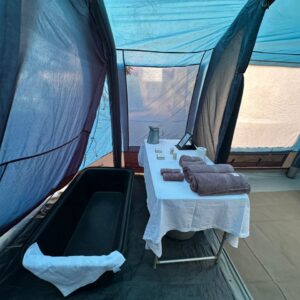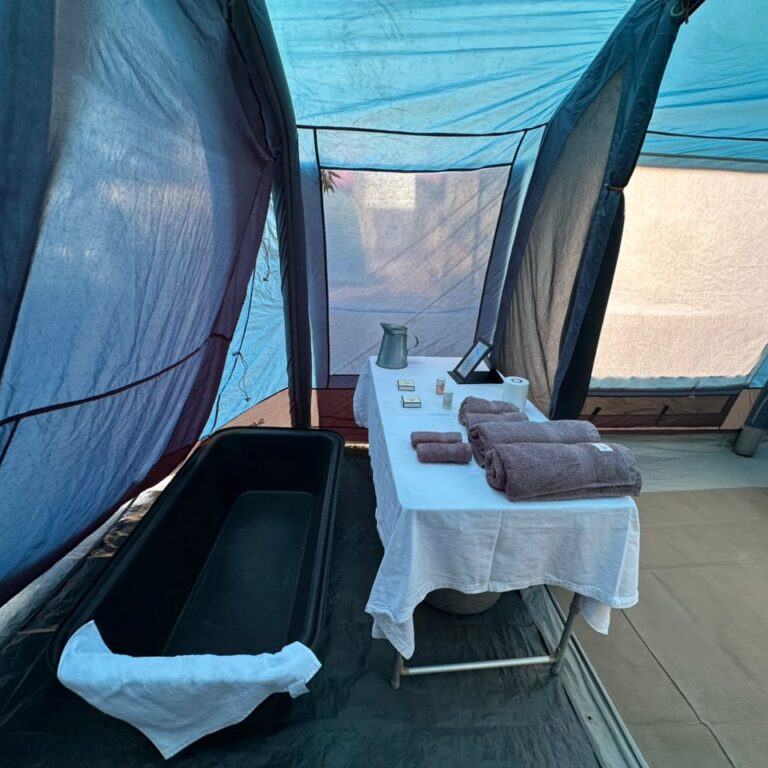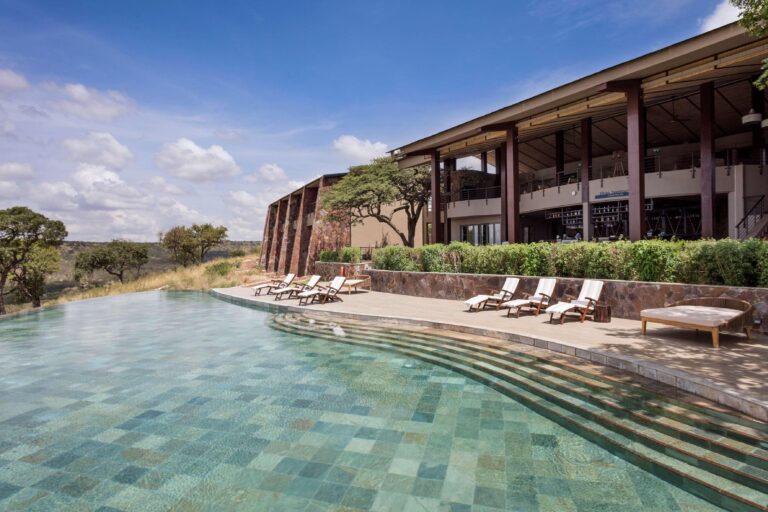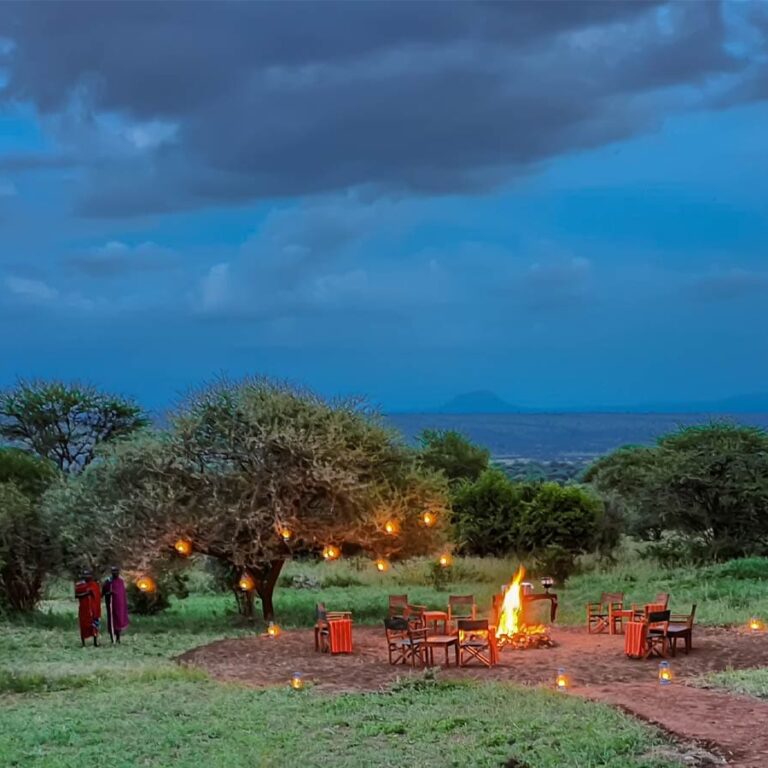Experiencing an exceptional ultimate first-time African safari can be an incredible experience, but preparation is key. Plan your trip by choosing a destination, understanding the costs involved, and packing appropriately. Be ready for early mornings, neutral-colored clothing, and a sense of adventure, as you’ll likely encounter wildlife up close and personal. Imagine a landscape painted in golden sun and vast, uninterrupted sky. The air hums with the promise of adventure, and the distant roar of a lion echoes across the plains. This is Tanzania, the quintessential safari destination, home to the iconic Serengeti and the breathtaking Ngorongoro Crater.
While the thought of planning your first African safari can seem daunting, choosing a single, world-class destination like Tanzania makes the process far more manageable and infinitely more exciting. This guide is your roadmap to a seamless and unforgettable Tanzanian safari, from the initial planning stages to the moment you stand in awe of a herd of elephants at sunset.
1. Choose Your First African Safari Destination: The Heart of the African Wild
For a first-time African safari, popular and well-regarded destinations include Kenya, Tanzania, South Africa, and Botswana. These countries offer diverse wildlife viewing opportunities, well-developed safari infrastructure, and varying levels of budget-friendliness. Consider your priorities, such as budget, desired wildlife, and travel style, when choosing. When it comes to safari, Tanzania is a country that has it all. Its northern safari circuit is the stuff of legend, encompassing the Serengeti National Park, the Ngorongoro Conservation Area. Tarangire National Park, and Lake Manyara National Park. This route is famous for a reason: it offers an incredible density and diversity of wildlife, including the “Big Five” (lion, leopard, elephant, rhino, and buffalo).
The Serengeti. Home to the Great Migration, where millions of wildebeest and zebra traverse the plains in an epic, year-round journey. This is a guide to your first African Safari, the place to witness one of nature’s most spectacular events.
Ngorongoro Crater. A UNESCO World Heritage Site, this collapsed volcanic caldera is a self-contained ecosystem with a high concentration of wildlife. Making it an ideal place for a “guaranteed” Big Five sighting.
Tarangire National Park. Known for its massive elephant herds and baobab trees, this park offers a different feel from the open plains of the Serengeti.
Lake Manyara National Park. Famous for its flamingos and the rare tree-climbing lions. For a more off-the-beaten-path experience, Tanzania’s Southern and Western circuits (including Ruaha and Mahale National Parks). Offer more exclusive and remote safaris, with fewer crowds and unique activities like chimpanzee trekking.
2. Consider the Time of Year: Timing is Everything
For a first-time visitor to Africa, timing your trip around the dry season (typically May to September) is generally recommended for optimal wildlife viewing and easier travel conditions. However, a guide to your first African Safari, the “best” time depends on the specific region and your interests. East Africa, for example, has two dry seasons, with the longer one from June to October offering the best conditions for the Great Migration. Your timing will shape your entire safari experience. Tanzania has two main seasons:
The Dry Season (Late June to October): This is the peak safari season. The lack of rain thins out the vegetation, making it easier to spot animals as they gather around water sources. The weather is cool and pleasant, and the skies are clear for photography. This is also the best time to witness the dramatic Mara River crossings during the Great Migration. Be prepared for higher prices and more fellow travelers.
The Wet or “Green” Season (November to May): This period is characterized by lush, green landscapes and is fantastic for birdwatching. Many animals give birth during this time, so you’ll have the chance to see adorable newborns. While wildlife can be harder to spot due to the thick foliage. The crowds are minimal, and prices are significantly lower. Short rains typically fall from November to December, while the long rains occur from March to May, which is considered the low season.
3. Determine Your First-Time African Budget Safari: An Investment in Memories
Setting a realistic budget is crucial for your first African safari. Costs vary significantly based on your chosen safari style, from budget-friendly camping to all-inclusive luxury lodges. Factors to consider include accommodation type, transportation (road vs. air), park fees, and the time of year. Be sure a guide to your first African Safari to account for all costs, including tips and extra activities, to ensure a stress-free and enjoyable experience. Safari costs in Tanzania can range from budget-friendly to ultra-luxurious. The average cost per person per day can range from a few hundred dollars to over a thousand, depending on your choices. Don’t forget to factor in park fees, which are a significant portion of the total cost, as well as flights, visa fees, and tips for your guides and staff.
Budget Safari: Often involves public campsites and shared game drive vehicles. It’s a fantastic way to experience the wild at a lower cost, though the amenities are basic.
Mid-Range Safari: Combines private guided tours with comfortable, mid-range lodges or permanent tented camps. This style offers a great balance of comfort and adventure.
Luxury Safari: Features exclusive, high-end lodges and tented camps, gourmet dining, private guides, and often includes activities like hot-air balloon safaris.
4. Book First African Safari in Advance: Secure Your Dream Trip
To ensure your dream African safari is secured and enjoyable, it’s crucial to book well in advance, ideally 6 to 12 months before your trip, particularly if traveling during peak season (June to October). This a guide to your first African Safari. Lead time allows you to secure the best accommodations, choose from a wider range of tour options, and potentially benefit from early bird discounts or upgrades. To book your first African safari, start by researching different destinations, tour operators, and types of safaris, then contact operators to compare quotes and book your trip. Consider your budget, desired experience (e.g., classic Big Five, unique wildlife), and the time of year when planning.
Why Book Early?
Securing Availability: Popular lodges, camps, and tours fill up quickly, especially during peak season. Booking early guarantees your preferred choices.
Choosing the Best Options: Early booking allows you to compare different itineraries, accommodations, and tour operators, ensuring you find the perfect fit for your preferences and budget.
Financial Benefits: Some operators offer early bird discounts, upgrades, or value-added inclusions for those who book well in advance.
Stress-Free Planning: Booking early provides ample time for research, visa and vaccination arrangements, and overall trip planning.
5. Choose Your First African Safari Style: Personalizing Your Adventure
Choosing your first African safari style depends on your priorities: budget, desired level of comfort, and preferred activities. Options range from budget-friendly camping and overland tours to luxurious lodge stays with personalized service. Consider your interests (wildlife viewing, cultural experiences, adventure activities) and research destinations that best match your preferences. Tanzania offers a variety of ways to experience the bush, allowing you to tailor your trip to your interests.
Classic Game Drive Safari: The most popular style, conducted in a 4×4 vehicle with a pop-up roof for optimal viewing. This allows you to cover vast distances and get close to the wildlife.
Walking Safari: An intimate and immersive experience that lets you appreciate the smaller details of the ecosystem, such as tracks, plants, and insects. These are led by armed rangers for your safety.
Hot-Air Balloon Safari: A breathtaking, once-in-a-lifetime experience. Glide silently over the Serengeti at dawn, watching the landscape and wildlife come to life from a bird’s-eye view, followed by a champagne breakfast in the bush.
Canoe/Boat Safari: Available in certain parks like Lake Manyara and Arusha National Park, this offers a unique perspective on aquatic life, including hippos, crocodiles, and a variety of bird species.
6. What to Pack for First African Safari: The Practical Essentials
For an African safari, pack lightweight, neutral-colored clothing, sturdy and comfortable shoes, and sun protection essentials like sunscreen and a wide-brimmed hat. Don’t forget insect repellent, a reusable water bottle, and binoculars for optimal wildlife viewing. Consider a daypack or small backpack for easy access to essentials while on game drives. Packing for a safari is all about comfort and practicality. Remember that most safari lodges and camps offer laundry services, so you don’t need to pack an outfit for every day.
Clothing: Neutral colors like khaki, brown, and olive green are best, as they help you blend in and don’t attract insects like tsetse flies (which are drawn to black and blue). Pack lightweight, long-sleeved shirts and trousers to protect from the sun and mosquito bites, especially in the evenings. A warm fleece or jacket is essential for chilly morning game drives and cool nights.
Footwear: Sturdy, comfortable walking shoes or sneakers are a must. If you plan on a walking safari, proper hiking boots are recommended.
Gear: A wide-brimmed hat, sunglasses, and a good camera with a zoom lens are essential. A pair of binoculars is non-negotiable for spotting distant wildlife.
Health & Safety: A small first-aid kit with personal medications, sunscreen, and a high-quality insect repellent (containing DEET) is crucial. Consult your doctor about necessary vaccinations and malaria prophylaxis well in advance of your trip.
7. What to Expect on First African Safari: The Daily Rhythm
What to Expect on Your First African Safari? A typical African safari follows a structured rhythm centered around early morning and late afternoon game drives, maximizing wildlife viewing opportunities. Expect to rise before dawn, enjoy a hearty brunch after the morning drive, and relax or engage in other activities during the heat of the day before the evening drive.
A typical day on an East African safari is a perfect blend of excitement and relaxation. The day starts early with a pre-dawn wake-up call, a light breakfast, and the first game drive as the sun rises. This is prime time for spotting predators. You’ll return to your camp for a hearty brunch and a rest during the hottest part of the day. The afternoon game drive starts in the late afternoon, concluding with a “sundowner” as the sun sets. Dinner is often a social affair, shared with other travelers and guides, followed by stories around a campfire.
Travel Tips: Before embarking on your first African safari, it’s crucial to prepare adequately. Key considerations include researching your destination, understanding the best time to visit, packing appropriately, prioritizing health and safety, respecting wildlife, and most importantly, embracing the experience with an open mind. We provide a comprehensive guide to preparing for your safari, including packing tips and advice on what to expect on game drives:
8. Stay Hydrated on a First African Safari: A Golden Rule
Staying hydrated is crucial for a safe and enjoyable African safari. Always carry a reusable water bottle and refill it regularly, aiming for 2-3 liters per day. Be mindful of the heat and potential for dehydration, especially during the hotter months and long game drives. Tanzania is an equatorial country, and the sun can be powerful. Staying hydrated is not just a recommendation—it’s a necessity. Your safari vehicle will be stocked with bottled water. Drink consistently throughout the day, even if you don’t feel thirsty, to prevent dehydration, headaches, and fatigue.
To plan a successful first African safari, determine your budget and time frame, choose a destination known for its wildlife, and book through a reputable tour operator. Consider the best time to visit, which can affect wildlife viewing and weather conditions. Pack appropriately, including layers for varying temperatures and sturdy shoes, and be prepared for early mornings and bumpy rides.
9. Be Mindful of Your First African Safari Surroundings: Respect the Wild
A successful and respectful African safari hinges on mindful interaction with the environment and its inhabitants. Prioritizing safety, respecting wildlife, and following guidelines provided by guides are paramount. This includes maintaining a safe distance from animals, avoiding loud noises or sudden movements, and not feeding or touching them. Additionally, being aware of your surroundings, especially during dawn and dusk, and adhering to designated paths or areas are crucial for a safe and enjoyable experience. You are a visitor in a wild, untamed land. A safari is a privilege, and you must respect the animals and their environment. Always follow your guide’s instructions.
Stay in the vehicle: Your guide will only permit you to exit in designated, safe areas.
Keep noise to a minimum: Animals are easily disturbed by loud noises.
Do not litter: The African bush is a pristine ecosystem. Do not leave anything behind.
No flash photography at night: Flash can disorient and frighten animals.
10. Choose a Reputable African Safari Operator: The Deciding Factor
Choosing a reputable African safari operator is crucial for a safe and fulfilling trip. Reputation, experience, communication, safety standards, and ethical practices are key factors to consider. Look for a guide to your first African Safari operators with positive reviews, transparent operations, and a strong commitment to responsible tourism, including wildlife conservation and supporting local communities. The success of your safari hinges on your operator. They are responsible for everything from your safety and comfort to the knowledge of your guides. A reputable Tanzanian safari company will have:
Stellar reviews: Check independent travel platforms and forums for feedback.
Expert guides: A knowledgeable, passionate guide can elevate your safari from a good trip to a life-changing experience.
Commitment to responsible tourism: The best operators support local communities and conservation efforts.
Excellent communication: They should be responsive, transparent, and willing to tailor your itinerary to your preferences.
11. Enjoy the First African Safari Experience: The Magic of Africa Awaits
A first-time African safari is an incredible adventure. To make the most of it, plan your trip with a focus on your budget, desired wildlife sightings, and preferred safari style. Consider the time of year, duration, and how you’ll get around. Pack appropriately, research local culture, and prepare for early mornings and bumpy 4×4 rides.
This is a journey that will stay with you forever. Book, compare, exceptional, and discover dream first-time African family, honeymoon/couple, luxury, mid-range tented camp, solo, seniors, budget camping, wildlife, safari photos, map, reviews, prices, costs, holiday, vacation packages all-inclusive, expedition, trips, adventures, holidays, travel
The beginner’s guide to planning your first Serengeti and Ngorongoro Crater Safari
To plan your first Serengeti and Ngorongoro Crater safari, book with a reputable operator who can handle logistics and design your ideal itinerary, considering park fees, vehicle types, and accommodation. Focus on when to visit for the Great Migration in the Serengeti and the abundant wildlife of the Ngorongoro Crater. Pack lightweight, layered clothing and essential items like sunglasses, hats, sunscreen, and a good camera with a zoom lens. Be prepared for long driving days, with game drives often lasting for several hours and incorporating picnic lunches.
How An African Safari Trip Changed My Travel Bucket List?
An African safari can change your travel bucket list by fostering a deep connection with nature and wildlife, offering unique cultural interactions, and providing educational opportunities that broaden your perspective on the world and conservation. The unmatched, up-close experiences with iconic animals, coupled with awe-inspiring landscapes and interactions with local people, create profound, “soul-moving” memories that are distinct from other travel experiences, leading to a deeper appreciation for the planet.
Ultimate Guide to Planning a Safari in Tanzania
To plan a Tanzania safari, determine the best time to visit (June-October for dry season game viewing, or November-May for lush landscapes and fewer crowds), select a reputable safari operator to handle logistics and guides, choose your accommodation style (lodges or tented camps), and set a realistic budget covering park fees and transportation. You’ll also need to secure a valid passport and visa and pack appropriate gear, including comfortable clothing and sun protection.
Planning an African Safari: What You Need to Know for the Trip of a Lifetime
To plan an unforgettable African safari, first define your budget, desired experiences, and travel preferences by contacting a specialized safari expert or using a booking aggregator. Next, choose a destination and the best time to travel, researching wildlife viewing conditions and booking flights well in advance. Be prepared for your trip by obtaining necessary visas and vaccinations, packing light, neutral-colored clothing, and essentials like a camera and binoculars. Finally, budget for tips, be flexible with your expectations, and follow safari etiquette to ensure a safe and enjoyable beginner’s guide to planning a Tanzania Safari adventure.
Complete Guide To Planning Your Trip To Tanzania
To plan a trip to Tanzania, begin by choosing your safari type and the best season for your interests (June-Oct for dry season/wildlife, Nov-May for green season/calving), then apply for a visa and complete required vaccinations such as yellow fever. Next, determine your itinerary, focusing on popular areas like the Northern Circuit for first-timers with destinations such as the Serengeti, Ngorongoro Crater, and Tarangire. Pack appropriate gear, including binoculars, a good camera, and appropriate clothing for various climates, but also respect local culture and etiquette. Finally, secure travel insurance and confirm all requirements with your chosen tour operator.








